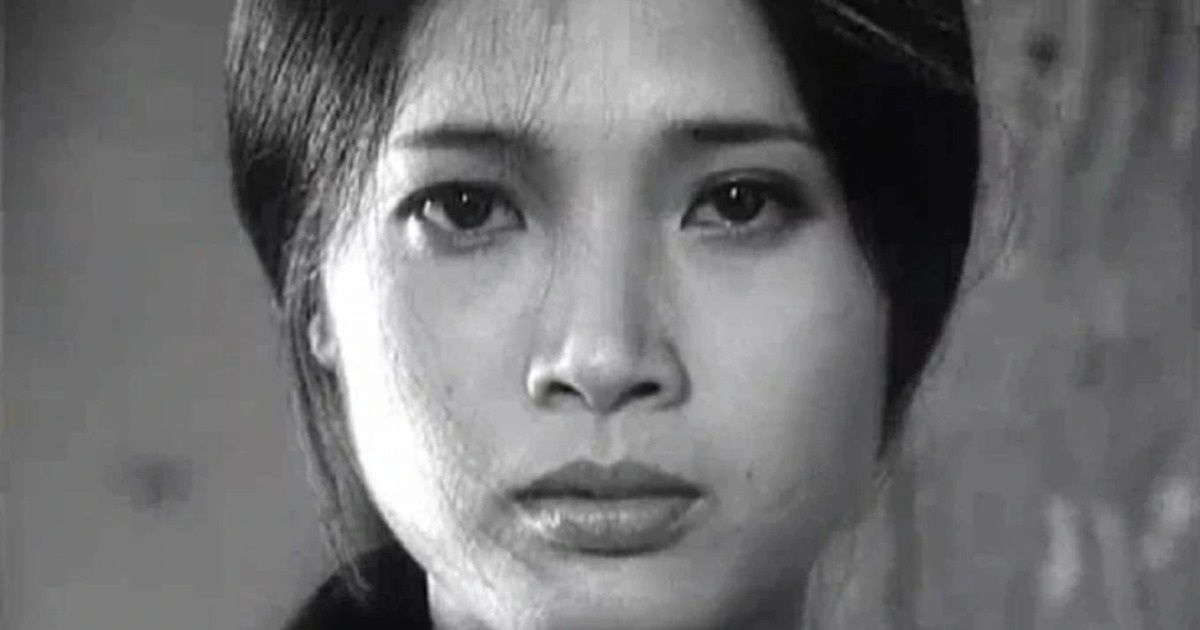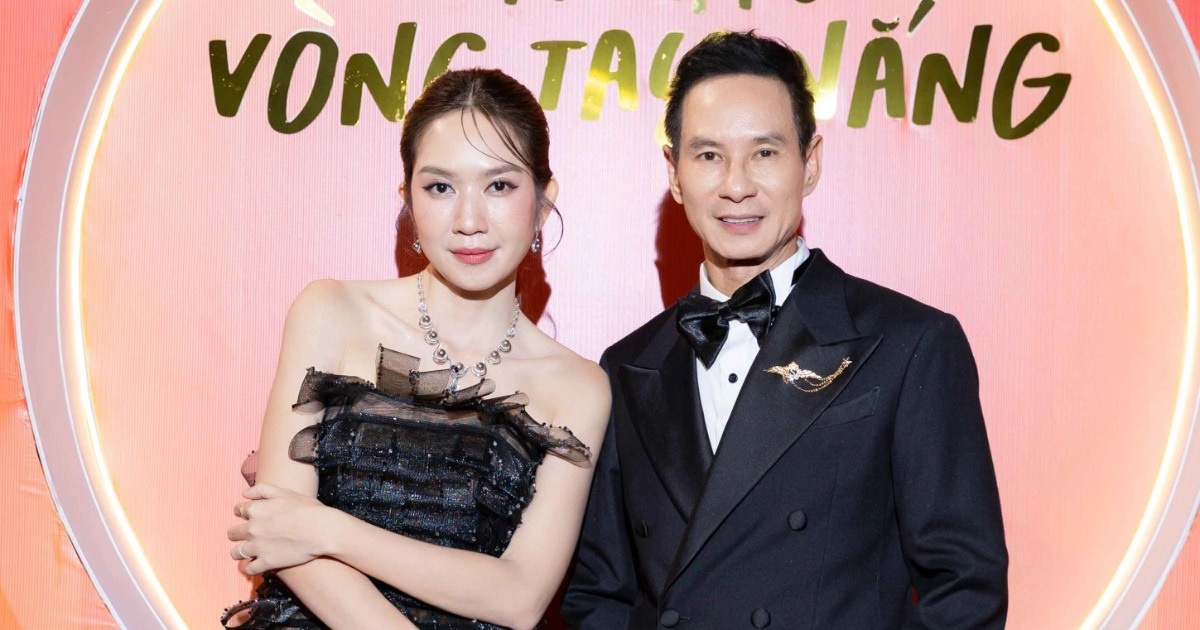The 1984 film “Until October,” written and directed by NSND Đặng Nhật Minh, stands as a landmark in Vietnamese cinema.
The film is included in CNN’s list of the 18 best Asian films of all time.
Actress Lê Vân (right) in the film “Until October” (Image: Screenshot).
The film has also garnered significant international and Vietnamese awards: a special prize at the 1989 Asia-Pacific International Film Festival; a commendation from the Committee for the Defence of Peace at the 1985 Moscow International Film Festival; a special jury prize at the 1985 Hawaii International Film Festival; and ranked fourth in Letterboxd.com’s top 100 Southeast Asian films.
The film tells the story of Duyên (played by Actress Lê Vân), a woman visiting her husband at the Southern Vietnam war front, only to receive news of his death.
Devastated, she falls from a boat into the river and is rescued by teacher Khang (Actor Hữu Mười). Concerned about her family’s well-being, Duyên secretly hides her husband’s death, asking Khang to pretend to be her husband and send letters home.
Moved by Duyên’s kindness, Khang develops feelings for her and writes a letter. Unfortunately, the letter falls into Duyên’s sister-in-law’s hands, exposing the truth. Khang must relocate, and Duyên is left to cope with her grief alone.
Lê Vân and her colleagues deliver a moving performance, portraying not only the pain of war but also the profound human values that resonate deeply with viewers.
Lê Vân, born in 1958 in a Hanoi artistic family, is the daughter of NSƯT Lê Mai and NSND Trần Tiến and the niece of NSND Lê Chức. Her two sisters, NSND Lê Khanh and dancer Lê Vi, are also renowned artists.
Beginning her career as a dancer, Lê Vân transitioned to film with roles in “Chom and Sa,” “Chị Dậu,” and “Đêm hội Long Trì,” among others.
Her role as Duyên in “Until October” is considered her breakthrough performance. With her skillful and professional acting, she portrays a Vietnamese woman embodying kindness, loyalty, and sacrifice.
This role earned her the Best Actress award at the 1985 Vietnamese Film Festival.
Lê Vân herself stated that Duyên was her most satisfying role. “When I acted, I couldn’t tell where the real world ended and the film world began,” she said.
Actor Đặng Lưu Việt Bảo praised Lê Vân, noting her dancer’s physique, Vietnamese features, and expressive eyes. He admired her intelligence, memorization skills, and proactive approach to acting.
After a successful career, Lê Vân seemed to disappear from the Vietnamese film scene.
In 2006, she unexpectedly returned with the autobiography “Lê Vân – Love and Life.” The autobiography caused some controversy due to its personal details. These controversies led to a more private lifestyle.
In an interview, Lê Vân stated that even without the spotlight, she felt fulfilled being a “normal person.”
From left: Actress Lê Vi, Actress Lê Vân, Actress Lê Mai, and NSND Lê Khanh (Image: Facebook).
Despite her impressive career, Lê Vân’s personal life was marked by three marriages.
Her first marriage lasted only 14 days. At that time, the government did not provide housing for single people, so she married a suitor to facilitate housing applications. However, she quickly realized she had no feelings for him and initiated a divorce.
Her second marriage was to a French-Vietnamese expat with three children from a previous marriage. After 10 years, their feelings faded, leading to separation.
Her third husband was Abraham, a Dutchman. They had two children together and moved abroad. Later, they returned to Vietnam to live.
“In the past, I didn’t believe in the word happiness because I was bound by the extremely narrow confines of a couple’s relationship. Now, I understand that happiness means much more when you know how to love and share,” Lê Vân shared.
In an interview with Dân trí, Actress Lê Mai revealed that Lê Vân currently lives with her husband and children in Hanoi’s Hoàng Hoa Thám street. She frequently visits her mother.
“Every afternoon, Vân and her son visit my house on Phan Đình Phùng street to talk to me. If I want something special to eat, she’ll drive me to a nice restaurant,” said Lê Mai. “Vân is private and avoids publicity. Although there was a lot of noise about her autobiography, my family was unaffected.”
Lê Mai also noted that her son-in-law, though a long-time resident of Vietnam, does not speak Vietnamese. Conversations with her son-in-law are mediated by Lê Vân and her grandchildren.
Lê Mai further shared that her sons-in-law (Lê Vân’s husband and Lê Vi’s husband, who is French) have lived in Vietnam for many years and are well-versed in Vietnamese culture and etiquette. She and her daughters still enjoy making traditional Vietnamese treats together.



